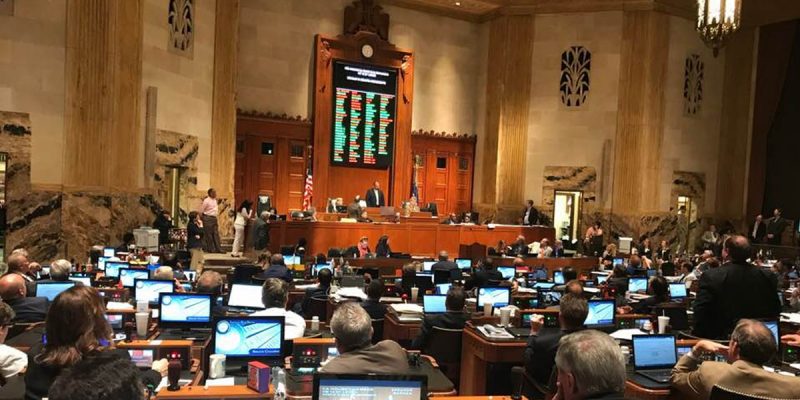What a difference a little gumption makes, which already has paid off for the Louisiana Legislature this year and may magnify considerably over the next couple of months to the state’s advantage.
Almost unnoticed last week, Democrat Gov. John Bel Edwards signed off on HB 1, the operating budget, and HB 2, the capital outlay budget, for next fiscal year. He cast for HB 1 five line-item vetoes that made essentially cosmetic changes, and remarkably no vetoes at all for HB 2.
This stands in great contrast with recent years during his two terms, although more so with capital outlay. The five is not that unusual of a number, as the average is only about four and in both 2016 and 2019 (right after and before and election) there weren’t any. The five from the 2022 session essentially removed a duplicative capital outlay request and took money from the Department of Culture, Recreation, and Tourism to give to the three university systems with senior institutions to full fund pay raises without their having to dip into their own resources.
However, the zero capital outlay excisions fall well below the average about 17 removals, matched only by none on 2020 when budgeting was affected by huge promised capital outlay intake from the federal government due to panicked pandemic-related debt issuance. In fact, in his first three years in office Edwards cast 101 such vetoes, and threw in another six in election year 2019.
Edwards did this because he maximized use of line item vetoes to punish certain troublesome lawmakers who opposed his tax-hiking, free-spending ways or who worked for legislation he didn’t like or against pieces he did. Yet except for last year when he issued 11, during his second term he has issued no others. The unusual pandemic budgeting of 2020 explains some of that, but he reverted to form in 2021 only to have none this year, despite the largest ever amount of legislation he didn’t like getting farther than ever in the legislative process this year.
Understanding why he shelved his use of the line-item veto started last summer when, for the first time ever, the Republican-majority Legislature, where the GOP has enough members plus one to override vetoes in the Senate and is two short in the House of Representatives although it can draw upon three members not affiliated with either major party plus Democrat state Rep. Francis Thompson who often votes with Republicans, called a veto session. It wasn’t able to override any bill vetoes and didn’t bring up any of the line-item capital outlay vetoed items, but it signaled a new seriousness to fight back.
Advertisement
The chambers then followed through this year by calling a veto session (within the regular session, so not as disruptive as bringing members back in the middle of summer) that overturned Edwards’ veto of the congressional reapportionment bill passed in an earlier special session. Combined, these actions shattered the impression of permanence attached to a gubernatorial veto, which governors have used as threats over projects to win votes from legislators.
Finally, this year legislative leadership amped up pressure by having both money bills go to the governor well in advance of the session’s adjournment. This meant they could schedule override votes before everybody went home and even before all legislation hit Edwards’ desk, neutering his ability to use these vetoes as threats against bills Edwards opposed that had supermajority support as legislators, so long as they all backed each others’ requested projects, would have easy opportunities to defy his strikes.
With this greatly reduced leverage both in the process of forming the money bills and in dealing with them after passage, Edwards had little motivation to cast line-item vetoes. And he couldn’t use them as weapons to fight off the bills he doesn’t like, perhaps a dozen or more that will have supermajority support, with him knowing high chance of a veto session to address any possible negations on his part being called and unable to issue credible veto threats – plus with knowledge they already eroded his political capital with the successful override and lawmakers won’t fear doing it again.
Thus, with little chance of having line-vetoes sustained that invited greater depletion of political capital, Edwards had to submit. Shorn of this means of influence, he may have to lay down many more times over the next month over coming bills successfully passing the finish line as the session winds up this week. Memo to Louisiana legislative Republicans: following this strategy is how you govern as a majority party.
Advertisement
Advertisement

